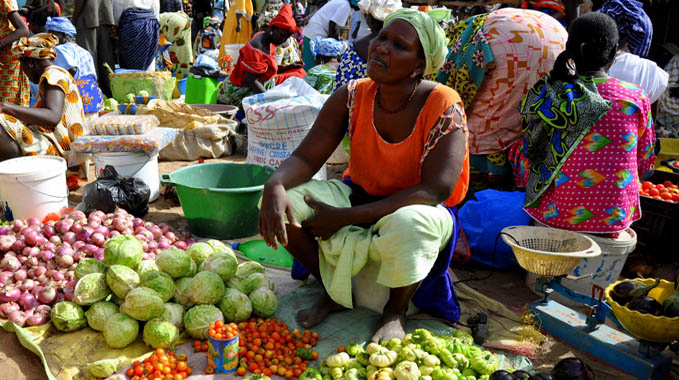According to the International Monetary Fund, Senegal’s economic growth will reach 10.1% in 2025. This will make Senegal the fastest-growing economy in West Africa and the fourth fastest in the world, according to Visual Capitalist, an American economic analysis institution.
Some institutions consider this estimate overly optimistic, predicting growth of around 8.8% or even 9.7% for the current year. The rise of the oil and gas sectors is thought to explain this.
Senegal, soon to be a middle-income country
This growth rate remains very significant compared to the African and global average, provided that external factors do not compromise this forecast. This is why the new Senegalese authorities are determined to firmly aim for Senegal’s entry, over the next twenty-five (25) years, into the restricted circle of middle-income countries at the upper echelon, with a GDP per capita of $4,500 and a poverty rate reduced to 10%.
All the work undertaken since 2024 by Ousmane Sonko, Prime Minister, and President Bachirou Diomaye Faye aims to move inexorably toward this ambitious goal.
Popular trust.
Despite some social tensions inherent in democratic life, the population is not mistaken. In an IPSOS poll published this year, 87% of the population believes that Senegal’s economy will be stronger in 2025 than it was in 2024.
However, the Sonko government must earn this confidence expressed by the population, which is admittedly striving to find relevant solutions to improve the daily lives of Senegalese people.
To reduce the public deficit, estimated at 5.4% of GDP this year, the Government is reportedly considering reducing state spending and imposing exceptional taxes on the wealthiest and most prominent companies. It should be remembered that in 2024, this deficit was estimated at 6.1%. By 2027, the target would be to limit this deficit to 3%, in accordance with the convergence criteria of the West African Economic and Monetary Union (WAEMU).
Reinventing a development model. The 2025 Budget is thus part of a dynamic of reinventing a development model to lay the foundations for economic sovereignty. This is why the political leadership in power in Dakar has designed and implemented the National Transformation Agenda “Senegal 2050,” a new framework for public policies, officially presented on October 14 by President Bassirou Diomaye Diakhar FAYE.
At the heart of this reflection and this ambitious “Senegal 2050” plan, the Government is banking on the rise of hydrocarbons to boost growth and strengthen the foundations of a resilient economy. The Government’s focus remains fixed on “a per capita income that should triple so that Senegal, once prosperous, can join the upper category of middle-income countries.” In his General Policy Address, Ousmane Sonko defined the four pillars of the National Transformation Agenda, which are:
• A Competitive Economy
• Quality Human Capital and Social Equity
• Sustainable Planning and Development
• Good Governance and African Commitment
The Government is committed to building an attractive and competitive economy where economic democracy, through economic freedom and inclusion, will prevail. The Government aims to make the private sector the driving force behind wealth and job creation with a key reform of the Investment Code. Sonko stated that an international marketing program will be implemented to promote the “Invest in Senegal” label.
The Government aims to boost the agricultural sector. Land reform is also planned to allow Senegalese farmers to own their land and develop it in joint ventures with private investors.
The Sonko government will pay particular attention to positioning Senegal as a technology hub in West Africa. The Government will support the development of an ecosystem of stakeholders bringing together researchers, startups, and industrialists for investments in artificial intelligence, software development, cybersecurity, high-value-added service outsourcing, and big data management to offer solutions tailored to business needs.
Focus on human capital.
Ultimately, the “Senegal 2050” Agenda will see 700,000 young people trained to carry out this program. The objective of this strategic program, or national transformation agenda, is to “make Senegal a sovereign, just, and prosperous country in 25 years.” Until now, Dakar concentrated 46 % of the country’s economic activity, and with the Senegal2050 Agenda, Senegal’s other regions will also be pools of development and economic growth.
Some Senegalese economists are questioning how to raise funds to finance this mega-project, “Senegal 2050.”
Trust in Senegalese institutions, the country’s mining and gas future despite political upheavals, and the country’s strong democratic roots all provide reassurance to potential investors. Moreover, plans are underway to create special economic zones to stimulate growth and attract investors.
The Sonko government’s orthodox management of public affairs is also reassuring. As evidenced by the recent audit by the Court of Auditors on the management of the former regime, the Minister of Finance and Budget, Mr. Cheikh Diba, was able to make corrections to prevent potential future abuses.
The Government’s priority will be strengthening budgetary control and public investment management.
The second priority concerns public debt management, which will require a return to budgetary orthodoxy.
The third priority aims to strengthen the efficiency and transparency of public finances.
For Mr. Diba, “We owe this rigor to the Senegalese.” We owe this transparency to our partners. We owe this exemplary nature to history. And it is with determination and responsibility that we will meet this challenge.”
Beyond all these efforts, the Government is determined to implement a national strategy to actively fight corruption, which will ensure that resources allocated to development are used efficiently and equitably.
Senegal’s economic outlook for 2025 appears positive, even though the global economic context and the malaise surrounding multilateralism could impact these figures. Sources: Thiès Info – IPSOS – IMF – World Bank – WAEMU – AfDB

